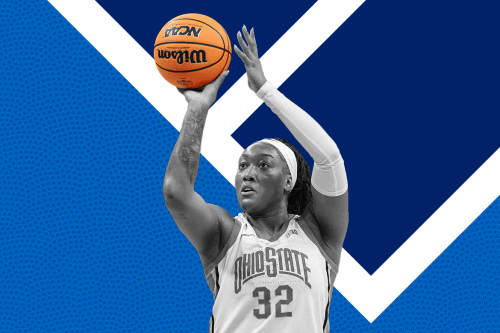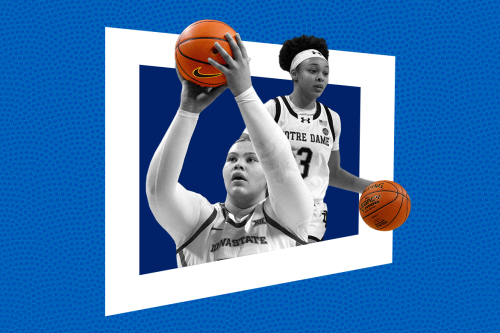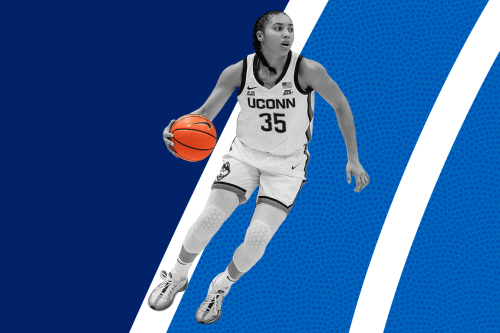Why Coach Shalane Flanagan Wants You To Measure Your Runs in More Than Miles
Shalane Flanagan has retired from competitive running. Here, she talks about her coaching career, how to push through threshold runs, and more.

You know that icebreaker question that goes something like: “If could invite any five people—living or dead—to dinner, who would you choose?” Olympic medalist Shalane Flanagan would make my guest list in a heartbeat. Whenever my running spark starts do flicker out, I watch her 2017 New York City marathon win on YouTube and everything I love about the sport—its energy, its passion, its grittiness—comes rushing back. Now retired, Flanagan no longer spends her days chasing PRs. She’s a coach—not just to elite athletes in the context of running—but to all of us on and off the track.
Experts in This Article
American long-distance runner, Olympic medalist, New York City Marathon champion, and global head coach of Nike Run Club
After parting with her professional running career in 2019, Flanagan started coaching for the Bowerman Track Club: a group of post-collegiate runners who train in Portland, Oregon. And now, the everyday runner can train with the Flanagan anytime using the guided audio runs on the Nike Run Club app. As the Global Running Head Coach for the app, Flanagan will be dreaming up plenty of recovery runs, fartleks, and tempo runs for you in the months and years to come.
For now, though, I sat down with Shalane (via Zoom—sadly not at my dinner table) to talk all about her upcoming breakfast (!) cookbook, what her audio coaching style is, and how you can measure running success in a metric that goes far beyond mileage.
Well+Good: You have a cookbook coming out late next year. What are you recipe testing in quarantine?
Flanagan: I’ve been deemed the art director for this next cookbook. My co-author is busy doing some writing right now so I’m taking food shots all day long right now and I get to say, “Oh, I like it!” or “I don’t.” The cookbook will be called Rise and Run and it’s a breakfast cookbook because endurance athletes seem to really appreciate breakfast the most out of all meals of the day.
A lot of the runners who I coach are having a mini-breakfast before they work out, then they have another snack-breakfast in the gym, and then they’re having brunch. So based on that, we just felt like there was a demand for a book like this. It will also have a lot of information, like training tips from me and other tips from experts that I’ve used throughout my career, like a mental coach that I worked with, a physical therapist, and a Pilates instructor.
What running gear are you loving right now?
This isn’t technically gear, but I think that one of the biggest innovators and one of maybe the more well-received products that Nike has supplied people right now during COVID is the Nike Run Club app and all of its runs that you can download.
People are trying to socially distance and I feel like those guided runs have helped people get out the door and get motivated to stay fit while having someone in their ear guiding them through run, and we’re getting a lot of new runners. During COVID, every second someone is downloading the Nike Run Club app and going for a run. That’s a huge spike and running—so that makes me super happy. To me, that is one of the more innovative things that is going to take off right now.
Gold Medal Couple Tara Davis-Woodhall and Hunter Woodhall Talk Marriage, Motivation, and Their Next Chapter With Nike

Coach Kara Lawson Wants You to ‘Handle Hard Better’—and Here Are 3 Ways to Do Just That
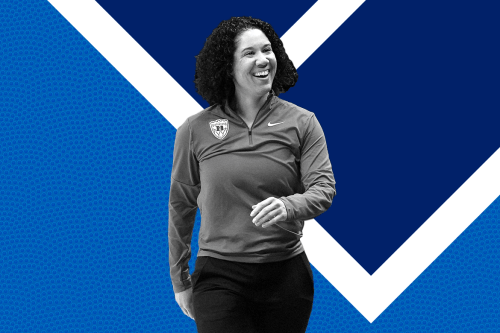
JuJu Watkins Leaves March Madness With ACL Tear—and This Knee Injury Is More Common Than You Think
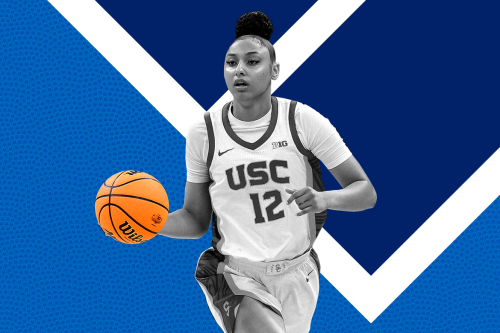
Most of the time, we measure our runs by miles and pace. What other metrics do you think indicate the “success” of a run and a runner?
A lot of runners tend to focus on their pace and mileage. With our elite athletes, it’s obviously an important factor in getting to the highest level. But in their daily runs, we do reinforce time spent on their feet. They don’t know how far they’re running. We’ll just say go for an 80-minute run and they can run it as fast or as slow as they want. A lot of them don’t wear GPS watches, so they’re more taking stock of the internals of what’s going on: “How do I feel today? Do I need to slow down because I feel tired?” They’re not checking splits and worrying about that. They’re just focusing on spending time on their feet.
Threshold runs—those miles that you do faster than your recovery runs but slower than your 5K or 10K pace—are super difficult for many runners. How do you coach your athletes through them?
Threshold runs have been around forever, but it is really tricky to figure out initially where your threshold should start. It’s a grind; it’s about being uncomfortable for a long amount of time. Trying to figure out how to sustain that uncomfortable pace is something that I became an expert at towards the end of my career because a marathon is basically a giant threshold run.
As your fitness changes, your threshold pace changes. So what we do with our athletes is we’ll start off with mile repeats at a threshold pace, we dial in that pace, and then it becomes a longer, sustained effort. So we’ll take—let’s just say—three-by-a-mile repeats and ask athletes to run 5:30 a mile. They’ll start off with three-by-a-mile with 90 seconds rest so that they can mentally break it up. When you first start out, threshold runs just seems so long, but it’s about proving to yourself that you can do three-by-a-mile at 5:30 a mile pace. What’s amazing is that, in a few weeks, the stress adaptation of the athletes works so that we’ll tell them to do those three miles straight at that pace and they can.
I think it’s important to start developing threshold paces and knowing what you’re capable of—just starting with some mile or kilometer repeats.
So much of running revolves around the mental games we play with ourselves while we’re on the run. Do you have a brain trick you like to use while you’re logging your miles?
Sometimes in my workouts, I would try to get so into a rhythm of my run. Then I’d play a game where I tried to see how close I could get to the split that I wanted to hit without looking at my watch. I’d reward myself for coming within a half-second of whatever it was supposed to be.
What do you hope your “coaching style” will be as you take on a bigger role with Nike Run Club app?
Obviously, I want to help inspire people. Perhaps most importantly, I just want to help people pass the time and allow them to run farther and faster than they thought was possible by just listening to me being in their ear. That’s what I truly hope for everyone: That they become runners and they fall in love with running because I think running makes everyone a better person. Also, I would love to share the little things that I did that helped me and that will hopefully help other people. So sharing mantras and stories and I hope to bring in my network of people that I think have a lot of great things to share as well.
Before you lace up for any runs, though, try this warm-up from Traci Copeland:
Sign Up for Our Daily Newsletter
Get all the latest in wellness, trends, food, fitness, beauty, and more delivered right to your inbox.
Got it, you've been added to our email list.
